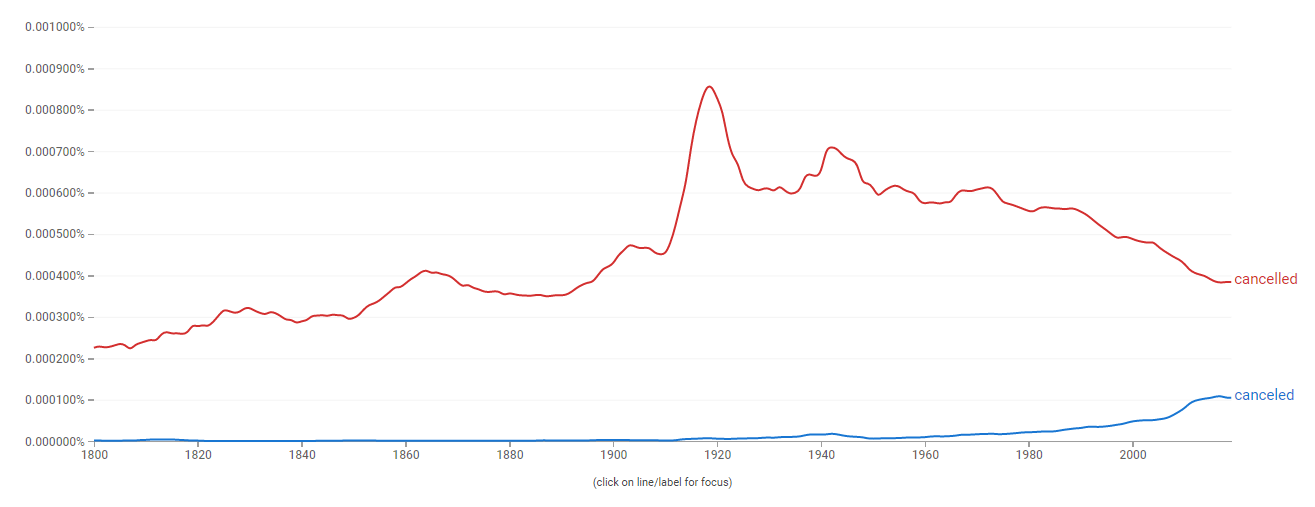Is It Cancelled or Canceled?
In American English, canceled and cancelled are acceptable, although canceled is more common. In British English, cancelled is the prominent, most widely used spelling.
Similarly, canceling is also more common in American English, while cancelling is more common in British English.
The noun cancellation (with two Ls) is the recommended spelling, regardless of which dialect you’re writing in.
Is it “Canceled” or “Cancelled”?
Cancel is a verb that means “to decide not to conduct or perform something that was previously arranged.”
But how do you spell the past tense (and past participle) of cancel: with one L or two Ls?
The short answer is that both are acceptable, it just depends on who you’re writing for. Below, we’ll explain when to use canceled or cancelled.
When To Spell “Canceled” With One L
If you usually read or write in American English, you’re probably used to seeing canceled. However, it’s not totally uncommon to see cancelled from time to time. Take a look at the Google Ngram below:

Although canceled is the preferred spelling, cancelled is not too far behind. The same goes for canceling and cancelling. Canceling is more common, but cancelling is widely acceptable, too.
Here are a few example sentences that use the word canceled:
When To Spell “Cancelled” With Two Ls
Cancelled is the preferred spelling in British English (and other English dialects). And unlike American English, the battle between canceled and cancelled isn’t even close—cancelled wins by a long shot:

As you might have expected, cancelling is also far more popular than canceling.
Here are a few example sentences that use the word cancelled:
Spelling “Canceled” and “Cancelled” Correctly
One thing to keep in mind is that cancellation is more commonly spelled with two Ls, regardless of which English dialect you’re writing in.
Besides that, just remember that canceled is more common in American English (although it’s not unusual to see cancelled), and cancelled is more common in British English. The only thing you shouldn’t do is use different variations within one text. LanguageTool—an advanced text editor that supports different English dialects—can remind you of this. Additionally, it can also correct various types of errors and help rephrase your sentences to better suit your audience.
